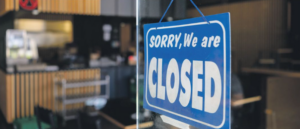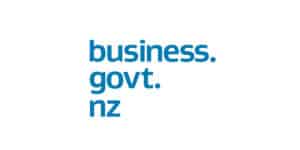27 JULY 2020
BUSINESS CAPABILITY WORKSHOP
Dr Deborah Russell, MP for New Lynn & Parliamentary Under-Secretary to the Minister of Revenue
Vanushi Walters, MP for Upper Harbour
Shanan Halbert, MP for Northcote
Evelyn, Seewald, The Mind Lab, Digital Boost
Welcoming attendees – many of whom were first-time visitors to BNZ Partners’ impressive new premises at 55 Corinthian Drive – Vanushi Walters reiterated the government’s three key goals:
- Keep New Zealanders safe from Covid-19
- Accelerate the country’s recovery and rebuild
- Tackle long-term challenges, like housing affordability, climate change, and child poverty
She confirmed that, perhaps not surprisingly, the majority of enquiries to her electoral office at present concern immigration, and urged businesses seeking staff to use connected.govt.nz. This site also has information about the different types of support available to employers, for example, Flexi-wage. The uptake of this programme has been lower than hoped, but it has nonetheless helped facilitate more than 3,560 work placements.
Dr Deborah Russell, a former chartered accountant with a PhD in political philosophy, admits to feeling “faintly nervous” about what’s happening in the world and is acutely aware that “what kills business is uncertainty”. She ran through various budget initiatives, including the reinstatement of the Training Incentive Allowance and – depending upon the outcome of public consultation – the potential introduction of a social unemployment insurance scheme.
Dr Russell also discussed the disparity in merchant fees between New Zealand and Australia. It is hoped that a new Retail Payments Systems Bill, to be introduced in late 2021, will save small businesses up to $74m every year by reducing the cost of Paywave and other credit and debit cards transaction fees.
Evelyn Seewald then provided an overview of Digital Boost, a $44m training and advisory initiative to help SMEs adapt to tap into the opportunities of doing business digitally. The information was generally well-received by the audience. However, there were a couple of concerns that the scheme seems to be promoting the services of global corporates (e.g., Shopify) rather than Kiwi providers. Evelyn encouraged BNH members who specialise in digital services to get in touch with Digital Boost and investigate the opportunity of partnering and presenting webinars.
As elsewhere in Auckland, transport is a hot topic around North Harbour. Shanan Halbert describes transport as a “work in progress exercise” and says that the approach must be multi-modal; no one solution can solve the congestion challenge. Therefore, roading, public transport, walking, cycling, rapid transit, and ferries all need to be considered. “If we are to be future-focused, we must give people more transport options.” Moreover, since transport accounts for more than 47 per cent of CO2 emissions, there have to be incentives for practical, sustainable alternatives. He personally feels that rapid transit will be essential, especially when considering the options for a second Waitematā Harbour crossing.
There was some ironic laughter when the parking at Albany’s park and ride was mentioned. This facility is over capacity every day, and there were concerns about what will happen if/when more commuters are incentivised to use public transport.
This lunchtime session ended with a robust Q+A, primarily focused on transport and business issues. Dr Russell pledged to take one of the queries to the Minister for Commerce and Consumer Affairs.
This was the first government update for BNH members. To help keep businesses better informed of support schemes, legislation, etc., it is intended that from this point, there will be regular six-monthly updates, either face-to-face, digitally, in print, or possibly a combination.
Click here to see the event’s photos.






